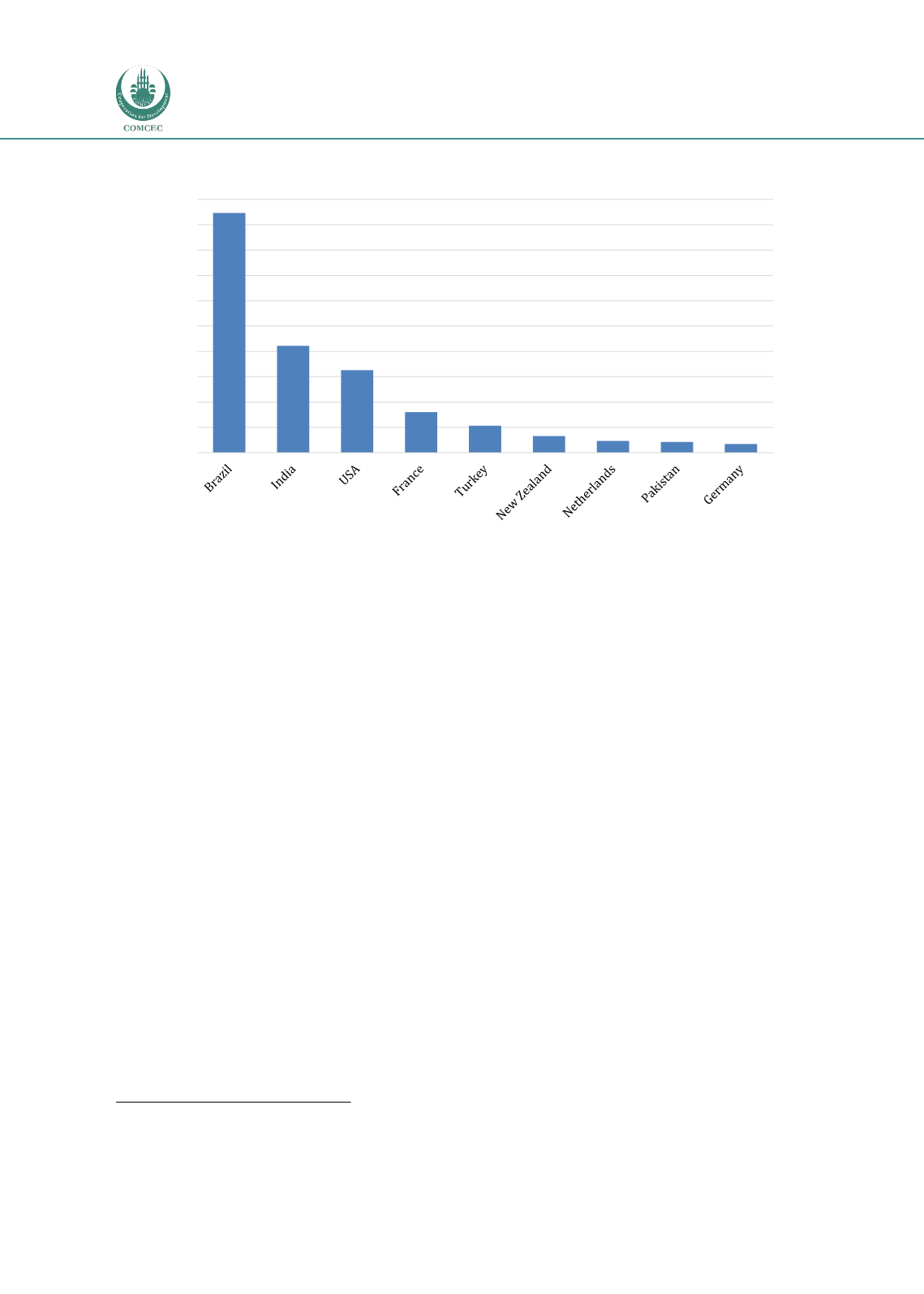

Promoting Agricultural Value Chains:
In the OIC Member Countries
44
Figure 3-11 Top exporters of meat and live animals to OIC member countries, 2013
Source: Reuters & Dinar Standard, 2015
3.3
Specific requirements for agricultural value chains in OIC countries
Because of Halal requirements
2
, agricultural value chains that start or end in OIC countries
tend to differ slightly from those that take place in other parts of the world. There is a wide
diversity in awareness and adoption of the Halal concept within the customer base of Muslims
globally. In Muslim majority countries, most customers will assume all foods are credibly halal,
while other non-Muslim majority markets will seek Halal verification, for example by checking
labels and certificates (Reuters & Dinar Standard, 2014). In most OIC countries, Halal
verification on all food imports is managed at the government level.
Halal requirements have an impact on the way food is produced. Almost all segments of food
and beverage industry value chains are somehow impacted by the Halal food certification
process. The implications for companies and other organisations throughout the value chain
are as follows
(Table 3-3).
2
Food permitted per Islamic dietary guidelines from the Quran. Muslims cannot consume: pork or pork by-products,
animals that were dead prior to slaughtering, animals not slaughtered properly or not slaughtered in the name of God
(Allah), blood and blood by-products, alcohol, carnivorous animals, birds of prey.
0
500
1000
1500
2000
2500
3000
3500
4000
4500
5000
Million US$

















